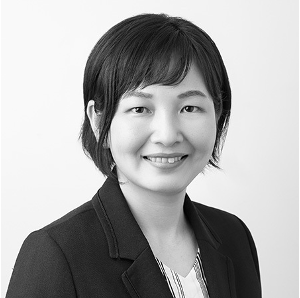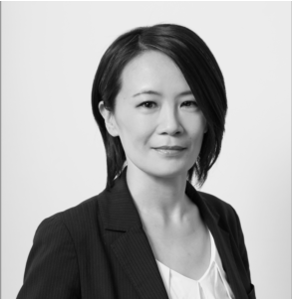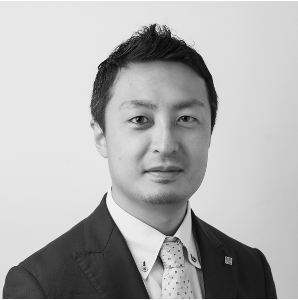[Leave a Nest 20th Anniversary Project・Part 6] “Leave a Nest University”, The Only Human Resource Development Program Integrating the Expertise of the Knowledge Manufacturing Industry, Is Now Open for Business
![[Leave a Nest 20th Anniversary Project・Part 6] “Leave a Nest University”, The Only Human Resource Development Program Integrating the Expertise of the Knowledge Manufacturing Industry, Is Now Open for Business](https://global.lne.st/wp-content/uploads/sites/58/2022/04/University-1200x900.png)
In celebration of its 20th anniversary on 14 June 2022, Leave a Nest has launched “Leave a Nest University” in June 2022, the only human resource development program to foster leaders who can contribute to global happiness.
Leave a Nest University was founded in December 2020 as an answer to the big question: “What kind of leader do we need to realize Global Happiness?”. It is the only human resource development program that analyzes the essence of the process of building a Knowledge-based Platform, i.e. knowledge manufacturing, as practiced and cultivated by the Science Bridge Communicators (SBCs) of Leave a Nest themselves, by integrating all of their expertise.
In order to solve global issues, it is necessary not only to develop science and technology, but also to have leaders who can move projects forward through bridge communication by assembling “Deep Tech”, an encyclopedia of technologies and knowledge to address “Deep Issues” explored through individual passion. Leave a Nest defines such human resources as “Global Bridge Leaders”, and is developing and conducting courses to foster leaders that would face the issues of various fields.
*Leave a Nest University is not a regular university recognized under the School Education Law of Japan.
Courses to be offered in 2023
The QPMI cycle is an acronym for Question, Passion, Mission, and Innovation. Broad concepts such as “environmental” and “food problems” are not sufficient in driving solutions for global problems. In fact, businesses that change the world are born from the “passion” of just a single person. In this course, you will be exposed to an overwhelming number of issues of problem-solving ventures, and through the process of thoroughly deeply investigating and verbalizing the theme you are passionate about, you will identify the real issue and the specific mission that would become your driving force.
For more information: https://univ.lne.st/courses/lvns_qpmi/
Course Developer/Professor

Ryuta Takeda, Executive Officer at Leave a Nest Co., Ltd.
He obtained a doctorate degree at Ohio State University, U.S.A, with a research on RNA pathogens of plants. He joined Leave a Nest in 2012 after participating in the launch of Leave a Nest America in 2011. He has served as Director of the Human Resources Development Division, the International Development Division, and the Global Bridge Laboratory. Since 2013, he has been promoting the overseas expansion of Tech Planter, first launched as a seed acceleration business in Japan. Currently, he is involved in starting new businesses in collaboration with government agencies and ventures, especially in Southeast Asian countries, by utilizing his network of key players in the overseas venture ecosystem.
__________________________
In this course you will learn the concept of “bridge communication”, necessary to change your values, mindset, and behavior, and to initiate something out of the ordinary. Creating “empathy” with people from different fields and different generations, and conceptualize “World Contribution Projects” by taking your vision 100 years into the future. The course consists of the “Bridge Communication Lecture (2 sessions)” and the “BC Practice Seminar (5 sessions)” to practice bridge communication.
For more information: https://univ.lne.st/courses/lvns_bridge2023/
Course Developer/Professor

Haruna Kusu, General Manager of the Human Resources Development Division at Leave a Nest Co., Ltd.
Haruna Kusu joined Leave a Nest in 2003. After serving as the general manager of the Educational Materials Development Division, the Education Development Division, and the Human Resource Development Division, she was appointed as the Director of the Research Career Center in 2016. She was involved in the launch of the Education Support Project of Leave a Nest and the creation of the Education CSR Project to accelerate corporate participation in education. She also has extensive experience in developing and implementing human resource development programs for companies and universities, focusing on the development of science bridge communicators, that is the foundation of Leave a Nest's human resource development.
__________________________
By focusing on the themes of “Waterfront, Environment, and Urban Development”, we aim to create businesses in such areas as water purification, waste circulation, disaster countermeasures, and transportation systems. In this course we will work together to consider subjects such as “aquaculture on land”, “resource recycling mechanisms”, and “new transportation systems” and to create businesses that consider the Earth as a business partner.
Consisting of six lectures and eight seminars, this program will help participants acquire the ability to identify issues and think about them from a multifaceted perspective, in order to consider sustainable businesses that are in harmony with the Earth while fully utilizing JR East's assets. (This course is a part of the collaboration project with East Japan Railway Company, JRE Station College.)
For more information: https://univ.lne.st/courses/jre_ecotech2023/
Course Developer/Lecturer

Naoko Matsubara, Executive Officer and CBO at Leave a Nest Co., Ltd.
Also serving as Director of Leave a Nest Capital Co., Ltd. Ms. Matsubara started her career in R&D business and has experience in various business fields such as management strategy, regional development, and human resource development, and was involved in the establishment of an office in Okinawa. She is responsible for developing strategic operations and launching new businesses involving major companies. In this course, based on the concept of “creating sustainable businesses under the theme of ‘waterfront, environment, and community development’ by fully utilizing the assets of stations, railroads, and towns”, she will work with students to create businesses that utilize the assets of diverse companies and local resources.
__________________________
Eating is a necessary behavior to humans. Throughout human history, food has been the stepping stone for the creation of numerous cultures and values. However, there are now many food-related issues exemplified by the depletion of food resources and food loss problems. In this course, we will create businesses in agri-tech, new food distribution and other food-related fields based on the theme of “New Food Cycle”. Consisting of six lectures and eight seminars, the course is designed to develop students' problem-finding skills and thinking methods, and to think about sustainable businesses that are in harmony with the world, with a multifaceted perspective and full utilization of JR East's assets. (This course is a part of the collaboration project with with East Japan Railway Company, JRE Station College)
For more information: https://univ.lne.st/courses/jre_foodtech2023/
Course Developer/Lecturer

Shuhei Tsukada, Executive Officer and CRO at Leave a Nest Co., Ltd.
Ph.D. in Agricultural Science, he is involved in the development and introduction of advanced technologies in the field of agriculture, including systems for land-based aquaculture and supplying functional agricultural, forestry, and marine products, as well as the establishment of ecosystems for local business startups. He is committed to technological and business development in collaboration with major and medium-sized companies, venture companies, researchers, etc. on a field-oriented basis. In this course he will take on the challenge together with the students of creating enterprises that utilize the assets of diverse companies and local resources, under the concept of “creating sustainable business based on the theme of ‘new food circulation' by fully utilizing the assets of stations, railroads, and towns”.
